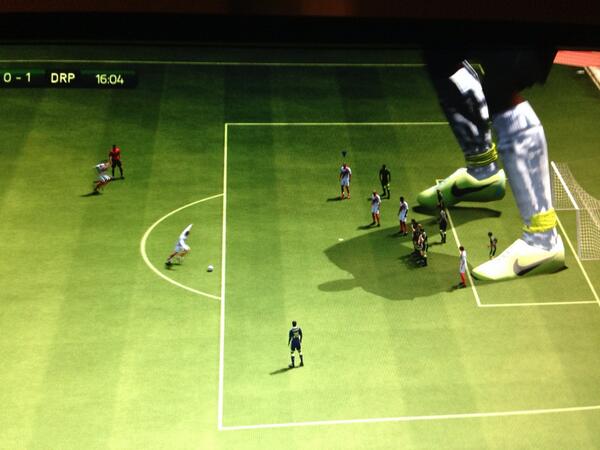- 4 Posts
- 573 Comments

 16·15 days ago
16·15 days agoBraking during impact is the worst thing you can do.
This is not correct, where are you getting this from?

 122·15 days ago
122·15 days agoDeer on the road is an edge case that humans cannot handle well.
If I’m driving at dawn or dusk, when they’re moving around in low light I’m extra careful when driving. I’m scanning the treeline, the sides of the road, the median etc because I know there’s a decent chance I’ll see them and I can slow down in case they make a run across the road. So far I’ve seen several hundred deer and I haven’t hit any of them.
Tesla makes absolutely no provision in this regard.
This whole FSD thing is a massive failure of oversight, no car should be doing self driving without using cameras and radar and Tesla should be forced to refund the
suckerscustomers who paid for this feature.
I recently moved to Affinity Photo with no complaints but I’m not a power user.

 7·22 days ago
7·22 days agoMaybe clinics should start mailing out Faraday pouches ahead of appointments?
I’m sure they don’t need the extra expense but this is fucked up.

 24·24 days ago
24·24 days agoShit take. They’re not bombing Goldman Sachs or HSBC.

 3·26 days ago
3·26 days agoI can’t recommend pfSense enough.

 3·27 days ago
3·27 days agoIt’s the only way. The problem is that if he called an election tomorrow he would stand a good chance of winning it.
Either you’re trolling or you have trouble with reading comprehension. Either way, easy block.
No, I said this
If only we had some way of storing energy for use later. Oh well.
Not this, as you claim
Right, and I replied to a comment where you claimed we can just use batteries to replace everything but renewables.
Why are you making stuff up?
This you?
We do not currently have the battery tech to have a fully renewables-powered grid where batteries are used for the regular dips in production wind and solar have.
We likely won’t have infrastructure like that in place for decades.
Put up or shut up.
That’s not how this works. You made a tall claim, without sources. Now it seems you’re not willing to provide proof to substantiate it. Why?
Can you back this up with links to reputable sources?
Renewable sources of energy, such as solar and wind power suffer from “intermittency”, meaning they do not consistently produce energy at all hours of the day.
If only we had some way of storing energy for use later. Oh well.

 507·28 days ago
507·28 days agoNot while Netanyahu remains in power, he has no incentive to end this.

 1·29 days ago
1·29 days agoYou do need a baseload,
Did you read the link in my post that you’re replying to? It’s from a former Federal Energy Regulatory Commissioner.
Here’s another article on the subject:
“The old myth was based on the incorrect assumption that base-load demand can only be supplied by base-load power stations; for example, coal in Australia and nuclear in France. However, the mix of renewable energy technologies in our computer model, which has no base-load power stations, easily supplies base-load demand. Our optimal mix comprises wind 50-60%; solar PV 15-20%; concentrated solar thermal with 15 hours of thermal storage 15-20%; and the small remainder supplied by existing hydro and gas turbines burning renewable gases or liquids.”
https://theconversation.com/baseload-power-is-a-myth-even-intermittent-renewables-will-work-13210
I’ll skip over the rest of your comment as it’s not really relevant.
But nuclear, even with its high initial capital cost and long build time, still does provide energy cheaply
It literally doesn’t. See the graph I posted.
and will last for a lot longer than solar panels and wind turbines,
Nobody is arguing that. We’re talking about cost and base load.
nuclear can be easily and quickly ramped up or down depending on the load required.
This is absolutely not true. It’s also worth noting that nuclear needs to operate as close to 24/7/365 to be economically viable. It’s a source of base load power, it’s not dispatchable and can’t be used as a peaker plant.

 22·1 month ago
22·1 month agoSure, it’s a negligible amount but OP was saying that nuclear would be competitive on cost if only red tape wouldn’t keep pushing the price up. Their contention was that less shielding would substantially lower the price of new nuclear but so far I’ve not seen anything to support this argument.

 65·1 month ago
65·1 month agoInteresting, can you provide more info? Which country? Link?
Wouldn’t emitting radiation, even at background levels, lead to an increase in radiation as it’s in addition to background stuff?
Also, there are strong arguments that we no longer need baseload generation and in fact it’s detrimental:
"No new nuclear or coal plants may ever be needed in the United States….
Wellinghoff said renewables like wind, solar and biomass will provide enough energy to meet baseload capacity and future energy demands. Nuclear and coal plants are too expensive, he added.
“I think baseload capacity is going to become an anachronism,” he said. “Baseload capacity really used to only mean in an economic dispatch, which you dispatch first, what would be the cheapest thing to do. Well, ultimately wind’s going to be the cheapest thing to do, so you’ll dispatch that first.”…
“What you have to do, is you have to be able to shape it,” he added. “And if you can shape wind and you can effectively get capacity available for you for all your loads.
“So if you can shape your renewables, you don’t need fossil fuel or nuclear plants to run all the time. And, in fact, most plants running all the time in your system are an impediment because they’re very inflexible. You can’t ramp up and ramp down a nuclear plant. And if you have instead the ability to ramp up and ramp down loads in ways that can shape the entire system, then the old concept of baseload becomes an anachronism.”"
https://energycentral.com/c/ec/there-really-any-need-baseload-power




Just as well. If you turn him on he offers to buy you a pony.